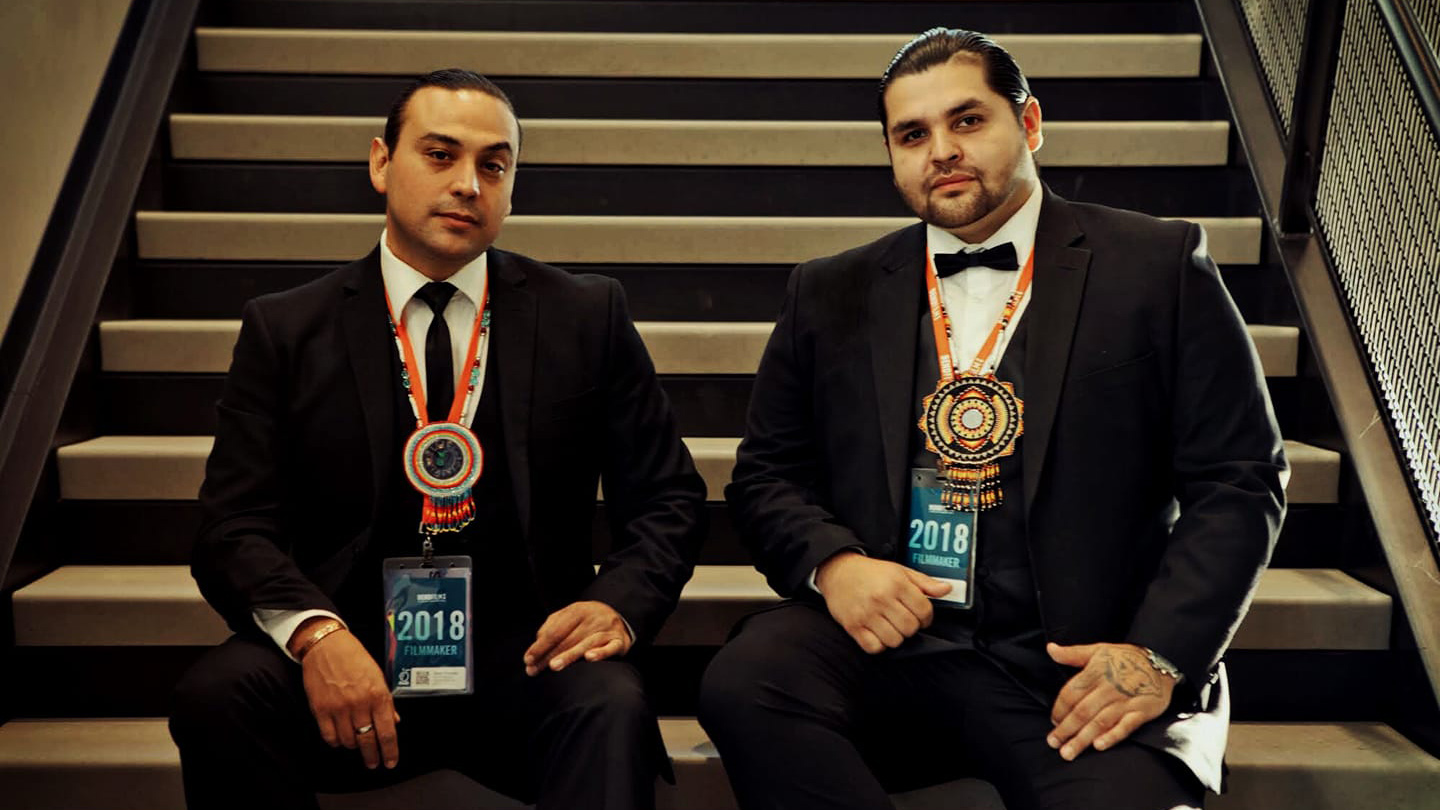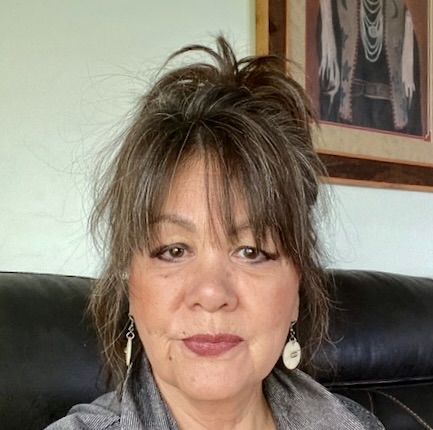“You know that tattoo is racist.”
It was one of the first sentences Isaac Trimble (Apache) spoke to the big burly man covered in tattoos next to him—a man who would eventually become his long-time film partner. Isaac was working on a film in Portland, Oregon when he was asked to pick up another crew member, LaRonn Katchia (Warm Springs/Wasco/Paiute) from the airport.
“Everybody was trying to describe him by saying ‘yeah he’s a big guy, and he’s got tattoos, but he’s really sweet,’” Isaac recalls.
On the journey home, Isaac noticed a Cleveland Indian tattoo on LaRonn’s finger. Realizing they were both Native, he attempted to make a joke to break the ice.
“You know that tattoo is racist.”
LaRonn didn’t laugh. In fact, he barely reacted. Realizing that LaRonn must have not recognized his Native identity, Isaac let the rest of the car ride fall into a painfully awkward silence.
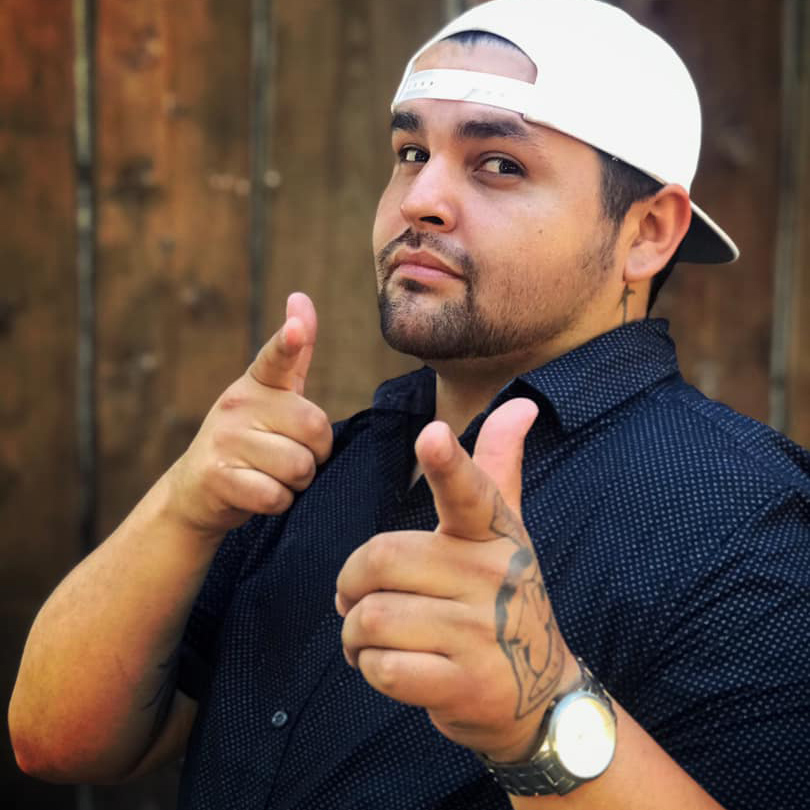
“I realized he was looking out the window like ‘Oh my god what does this Mexican know about Indians?’” Isaac said.
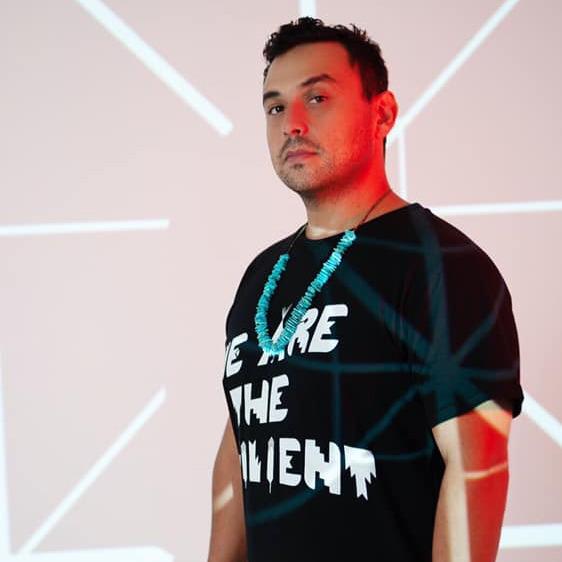
It was only after they arrived on set that LaRonn realized he had misread the situation.
“You’re Native American! You’re a Native American in film,” LaRonn finally laughed.
It was the beginning of a 9-year-long friendship. Isaac Trimble and LaRonn Katchia are a creative match made in heaven in the Native horror film industry. Their collaborative works include Missing Indigenous, a 2017 Portland 48 hour Film Festival award winner, Sacred, Shadow Dancer and more. Issac recalled with fondness the making of their first film together, Awakening, stating it was a combination of their minds meeting and really seeing each other. Isaac said working together is about recognizing each other’s talents. While LaRonn has an unmatched writing style, Isaac has a knack for bringing people together.
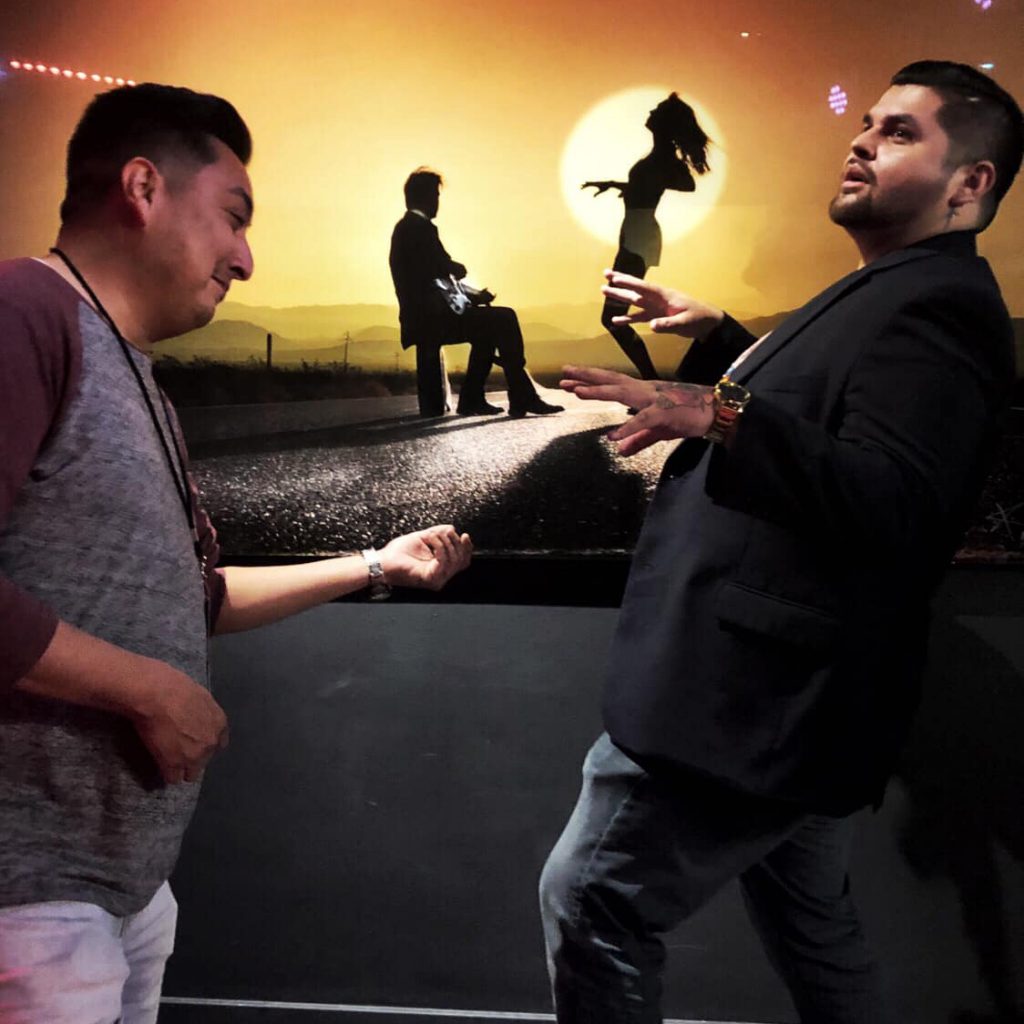
“We wear different hats. A tree needs to be a tree, and an apple needs to be an apple. They may help each other, and they may come from each other, but they’re not the same thing,” Isaac said.
While reflecting on their years of work and friendship together Isaac acknowledged the importance of answering the call for each other. He said it’s important to focus more on what they can give one another rather than what they can gain.
“It’s like a marriage,” Isaac said.
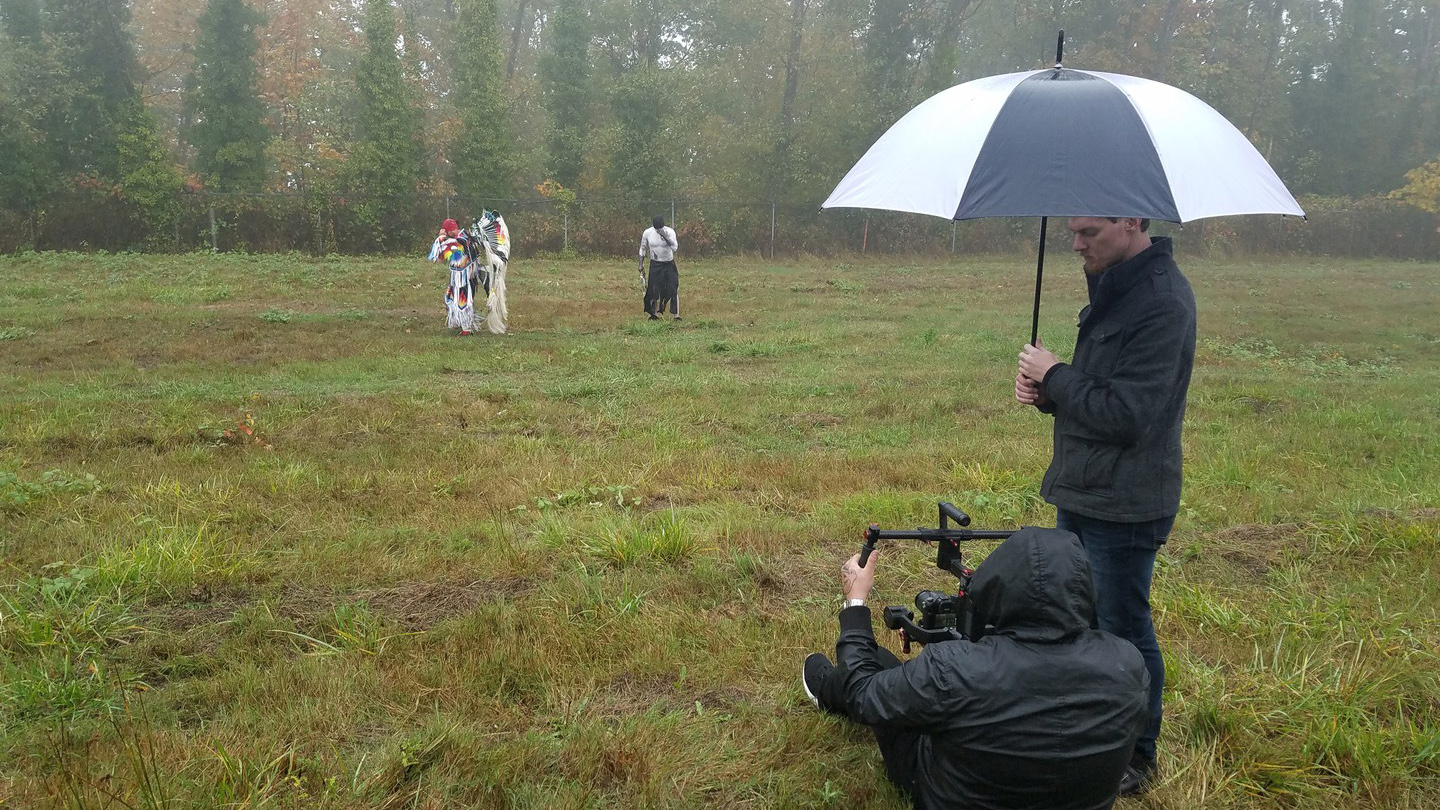
As a creator, Isaac values the importance of Native Americans being seen through accurate representation, not just in documentaries but in cinematic movies. He grew up noticing that his culture and his people weren’t represented at all in film, ultimately leading him to become a filmmaker to fill the gap. His ultimate goal is to have Native Americans seen in film as doctors or lawyers.
“We didn’t come this far to only come this far,” Isaac said. “We want to be able to take our audiences a little bit further—to take our films a little bit further.”
But the road to success as a Native American in the industry isn’t an easy one.
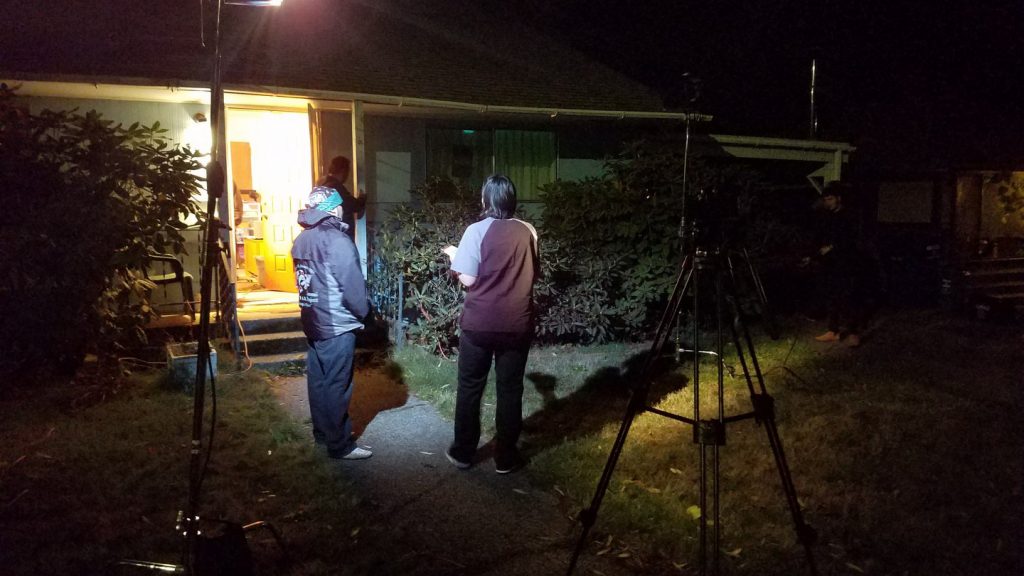
“People discount you because of the way that you look before they see any presentation of any film that you’ve done,” he said.
However, Isaac recalls a quote from a mentor that continues to inspire him to keep creating in a difficult landscape.
“You can sit on the bench and wait for a Native American film to be made for you. Or you can create one yourself.”
Isaac believes that success in filmmaking comes from within. It comes from being comfortable with failing and learning how to come back from those failures stronger and smarter. He said there is so much more to learn from failure than success. Letting yourself fail is part of the process.
“Give yourself permission,” he said. “Tell your story and know that your story has value because it’s your story. There’s no right way or wrong way to make it, because it’s yours. Be creative. Keep moving forward.”
